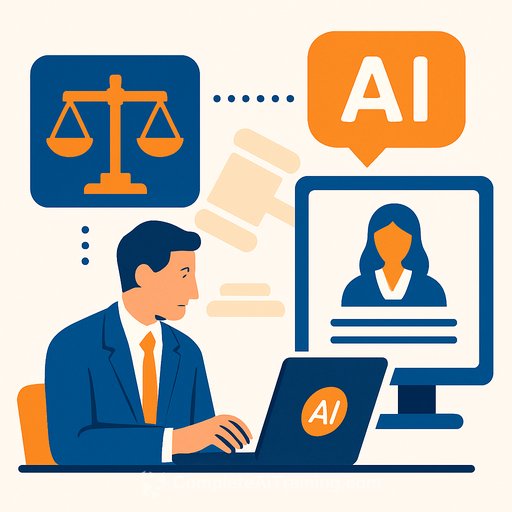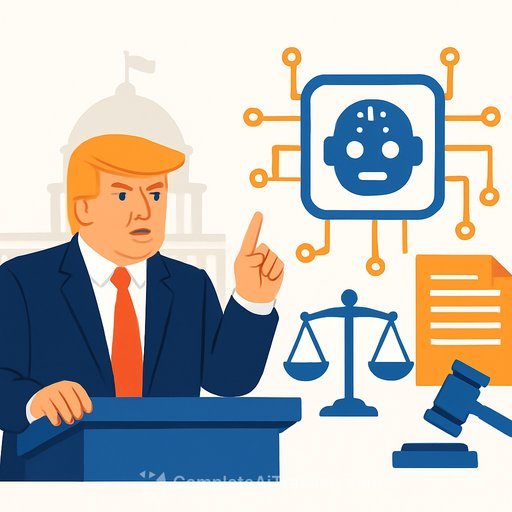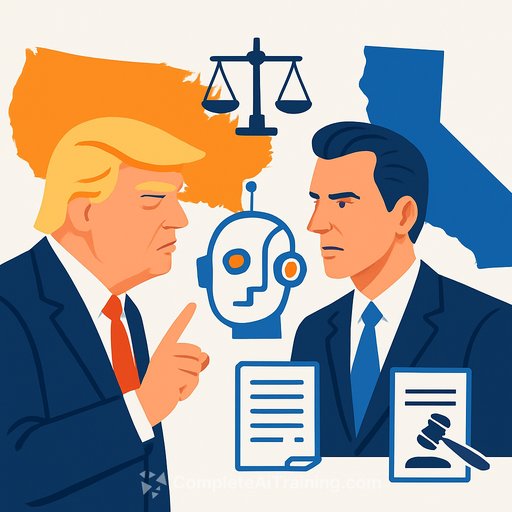Best AI for Lawyers in 2025
Artificial intelligence is changing how legal professionals work by automating routine tasks and boosting productivity. The top AI tools for lawyers simplify legal research, automate contract review, and handle large volumes of data efficiently. After evaluating the leading AI legal tech solutions, I’ve compared their features, pricing, pros and cons, and use cases to help you pick the best platform for your firm or organization.
Here are the top AI legal tech assistants for 2025:
- ChatGPT: Best for drafting legal documents
- Everlaw: Best for document review
- Harvey AI: Best for document automation
- Clio Duo: Best for billing efficiency
- HubSpot CRM: Best for client management
- Spellbook: Best for contract drafting and review
Overall, ChatGPT ranks highest due to its security, compliance, and ease of use. Read on to learn about each tool’s use case, pricing, and key features.
AI Legal Tech Solutions Compared
AI legal tools combine traditional AI—like data analysis and contract management—with generative AI that creates new legal content. Below is a comparison of six leading platforms based on features, integration, and pricing.
| Best for | Key features | Integration | Starting price (annually) |
|---|---|---|---|
| ChatGPT | Drafting legal documents, content generation, summarization, AI-driven research | API integrations with various platforms | $25 per user, per month |
| Everlaw | E-discovery, document review, trial presentation | Standalone with case management integrations | Custom pricing |
| Harvey AI | Contract analysis, legal research, litigation support | Integrates with firm systems and document management | Custom pricing |
| Clio Duo | Case info retrieval, task automation, billing efficiency | Fully integrated with Clio Manage | Starts at $49 per user, per month |
| HubSpot CRM | Client lifecycle management, workflow automation, conversation routing | Integrates with email, calendars, documents, legal solutions | Starts at $9 per month |
| Spellbook | Contract drafting, risk analysis, workflow automation | Microsoft Word add-in | Custom pricing |
ChatGPT: Best for Drafting Legal Documents
Overall rating: 4.5/5
Highlights: Advanced GPT-4-based language model with a chat interface that supports text, images, PDFs, charts, and audio inputs. Fast real-time feedback improves drafting and research tasks. SOC Type 2 compliant with strong data encryption for enterprise-grade security.
Why ChatGPT? Its extensive training on legal texts allows it to draft formal, structured, and technical legal documents. It’s easy to use and integrates well with other platforms.
- Pros: Intuitive interface, customizable, supports multiple file types
- Cons: Limited long-term memory, occasional inaccuracies
Pricing:
- Free: Limited GPT-4 access
- Plus: $20/month
- Pro: $200/month
- Team: $25/user/month (annual billing)
- Enterprise: Contact sales
Everlaw: Best for Document Review
Overall rating: 4.3/5
Highlights: Cloud-native platform specializing in e-discovery and litigation. Uses generative AI to summarize and code document sets quickly. Drag-and-drop interface for easy upload of large document collections.
Why Everlaw? It processes massive volumes fast, helping teams review millions of pages in hours instead of weeks.
- Pros: Easy-to-use interface, fast document ingestion and search
- Cons: Fully cloud-dependent, some migration concerns
Pricing: Contact sales for details; offers pay-as-you-go and lock-in options.
Harvey AI: Best for Document Automation
Overall rating: 4.2/5
Highlights: AI fine-tuned on legal data, supporting contract analysis and litigation. Features a no-code workflow builder and integrates with Microsoft 365 tools like Word and SharePoint.
Why Harvey AI? Enables firms to create self-serve workflows from internal templates, automating document drafting at scale.
- Pros: Word integration, drag-and-drop uploads, workflow builder
- Cons: Overkill if you mainly need research, relies on external LLMs
Pricing: Contact sales for a quote.
Clio Duo: Best for Billing Efficiency
Overall rating: 3.8/5
Highlights: Integrates billing, time capture, invoicing, and financial reporting into one platform. Powered by Microsoft Azure OpenAI GPT-4, it automates time tracking and billing tasks inside Clio Manage.
Why Clio Duo? Eliminates duplicate data entry by centralizing billing and accounting workflows.
- Pros: All-in-one billing and accounting, automated reporting and follow-ups
- Cons: Extra cost for add-ons, limited to data stored in Clio
Pricing:
- EasyStart: $49/user/month (annual billing)
- Essentials: $89/user/month (annual billing)
- Advanced: $119/user/month (annual billing)
- Complete: $149/user/month (annual billing)
HubSpot CRM: Best for Client Management
Overall rating: 3.7/5
Highlights: Popular CRM that supports sales, marketing, and client service. Offers an intuitive UI and straightforward setup, ideal for firms without dedicated IT resources.
Why HubSpot CRM? Automatically creates contact records, logs interactions, and provides a 360-degree client timeline.
- Pros: User-friendly, free tier available, scalable
- Cons: Not designed specifically for legal firms, complex workflows may require developers
Pricing:
- Free: Up to two users
- Sales Hub Starter: From $9/user/month (annual billing)
- Sales Hub Professional: From $90/month per seat (annual billing)
- Sales Hub Enterprise: From $150/user/month (annual billing)
Spellbook: Best for Contract Drafting and Review
Overall rating: 3.3/5
Highlights: AI-powered tool embedded directly into Microsoft Word. Supports drafting, redlining, benchmarking, and multi-document coordination within one interface.
Why Spellbook? Makes contract review and drafting seamless by tracking changes, comments, and suggestions natively in Word.
- Pros: Native Word integration, fast risk detection, in-document redlines
- Cons: Limited pricing transparency, not suited for case law research
Pricing:
- Free AI access program for law schools
- Custom pricing for law firms and in-house teams
How These AI Legal Tech Solutions Were Evaluated
The evaluation focused on four categories weighted by importance:
- Core features (35%): Functionality and value delivered by the platform’s main features.
- Security and compliance (30%): Data protection measures, encryption, certifications, and access controls.
- Ease of use (20%): Setup simplicity, interface clarity, and user navigation.
- Cost (15%): Affordability, starting price, and availability of free plans or trials.
Frequently Asked Questions (FAQs)
Can AI be used in courtrooms or legal proceedings?
Yes. AI assists in analyzing data, researching case law, and supporting legal arguments. However, ethical considerations require cautious implementation in court settings.
What are the data privacy concerns when using AI in law?
Lawyers must protect client confidentiality. Uploading sensitive documents to public AI models risks exposing information, as providers may retain and reuse data for model training.
Do AI legal tools integrate with case management software?
Many do. Integration allows AI to analyze case documents, highlight evidence, identify patterns, and support decision-making throughout the legal process.
Bottom Line
The best AI legal tech solutions boost productivity and efficiency while maintaining strong security. They help draft contracts faster, automate billing, manage clients, and extract insights from large datasets. Still, human review remains essential to avoid ethical and privacy issues.
Your membership also unlocks:






